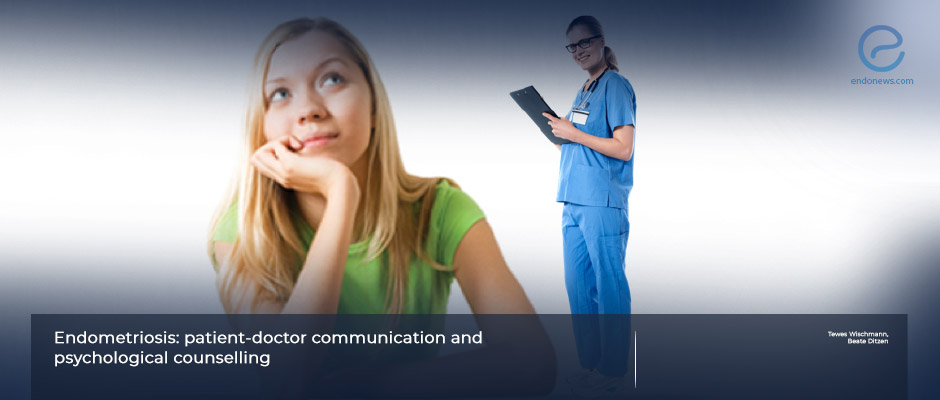Hands-on proposals for medical counseling and verbalizations to use for women with endometriosis
Mar 21, 2024
Overcoming passive/dependence and helplessness in endometriosis
Key Points
Highlights:
- Due to the stressful chronicity of endometriosis, patients may feel passive, dependent, and helpless during the natural course of the disease.
- Endometriosis has only recently established itself in the domain of public interest. Many patients with endometriosis had experienced little sympathy for their inquiries.
Importance:
- Since endometriosis is a complex and multi-factorial process, medical professionals should attain a specific combination of various approaches.
What's done here:
- This is an overview of the psychological aspects of endometriosis, with an emphasis on patient-physician interactions for patients, outlined by academics from psychology and psychosocial medicine.
- The guidebooks, websites, and other resources focused on only German-language offerings.
Main key feature :
- The principles of patient-doctor communication developed in connection with other chronic ailments would also apply to patient-oriented counseling in endometriosis.
Lay Summary
An overview has been published recently in the Archives of Gynecology and Obstetrics on patient–doctor communication and psychological counseling in endometriosis by two academicians, Drs. Wischmann and Ditzen, from Heidelberg University, Germany. There is no known cure for endometriosis and primary management aims at controlling and ameliorating the symptoms. Since the stressful chronicity of endometriosis, the patients may feel passive/dependent and helpless during the natural course of the ailment.
Interventions aimed primarily at women with traumas may also be helpful in the interaction with endometriosis patients.
The enigma of passive/dependent and helplessness in the course of the disorder may be handled by increasing the quality of life so that the patients should be encouraged in active/self-reliant self-management.
The psychologic symptoms in connection with endometriosis may yield anxiety and depressive symptoms as well as concerns potentially associated with chronic pain disorders and/or impaired fertility.
In addition to medical and surgical therapies, pain-therapeutic and physiotherapeutic approaches have their impact, as well as dietary counseling, osteopathic relaxations, psycho-educative and psychological counseling, plus psychotherapy and non-verbal therapies such as dance, painting, art, and music therapies.
The authors finally conclude by emphasizing that patient-oriented counseling benefits from the principles of patient-doctor interaction similar to other chronic illnesses or traumas as they are equally applicable to endometriosis.
Research Source: https://pubmed.ncbi.nlm.nih.gov/38051372/
Endometriosis psychosomatic medicine patient–doctor relations couple relations · sexuality

